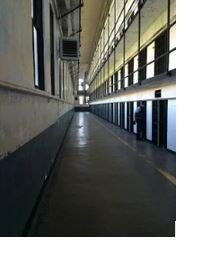 Millions of Californians face barriers to employment, housing and education because of old arrests and convictions, increasing the likelihood of recidivism. Assemblymember Phil Ting (D-San Francisco) has introduced AB 1308, legislation that would automatically clear criminal records for people already entitled to such treatment under current law. Many don’t go through the existing process because it’s burdensome and expensive.
Millions of Californians face barriers to employment, housing and education because of old arrests and convictions, increasing the likelihood of recidivism. Assemblymember Phil Ting (D-San Francisco) has introduced AB 1308, legislation that would automatically clear criminal records for people already entitled to such treatment under current law. Many don’t go through the existing process because it’s burdensome and expensive.
“California believes in rehabilitation and invests heavily in programs that give incarcerated people a second chance. Yet after they’ve paid their debt to society and are released, they’re trapped in a ‘paper prison.’ They cannot find work, a place to live or go to school,” said Ting. “We can easily help them get back on their feet and lead productive lives by making it easier for them to automatically clear their records.”
AB 1308 builds upon a recent law that Ting championed in 2019, providing automated records relief for certain convictions occurring January 1, 2021 or later once individuals have served their sentences and completed probation; it also applies to arrests that did not result in a conviction. The new proposal, sponsored by Californians for Safety and Justice and Prosecutors Alliance, would make the policy retroactive to arrests and convictions starting from 1973, opening doors to a fresh start for millions more people.
As many jurisdictions examine biases in their criminal justice system, it is equally important to explore how to improve life after incarceration. The obstacles to successful re-entry disproportionately impact communities of color and those who are socio-economically disadvantaged. By requiring no additional action by petitioners, California’s records clearance system can be made more fair and equitable.
Studies show the lack of access to jobs and housing are the primary factors that drive individuals to reoffend. In addition to this public safety benefit, automatic clearance reduces the burden on taxpayers to fund more jails and prisons. The existing petition-based model costs more than $3,700 per record to clear, compared to 4-cents a record using a computerized system.
Ting has successfully advanced many criminal justice reforms in California, including a new avenue to seek resentencing, the creation of a diversion program for misdemeanor offenders and new standards for the elderly parole program. AB 1308 is expected to be heard in committee this spring.
# # # # #